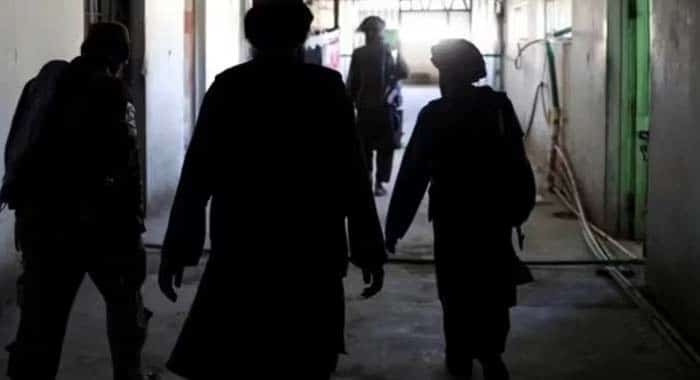Two Afghans who spent months in Taliban custody have described severe physical and psychological abuse, saying both male and female officers inflicted mistreatment in intelligence-run detention facilities. Their testimonies, shared with Afghanistan International and later discussed on the social media platform X, add to growing calls from rights groups for independent monitoring of Taliban prisons.
Julia Parsi, a women’s and human-rights activist, said armed men in unmarked vehicles arrested her outside her Kabul home on 27 September 2023, accusing her of “agitating for women’s rights.” Blindfolded and beaten, she alleged she was pressured to surrender her phone password and moved to an intelligence agency detention site, where seven female officers insulted and assaulted her before seizing control of her online accounts.
Parsi said she endured 41 days in solitary confinement and later discovered her teenage son had been detained “only because of his link to me.” She alleged further torture; water dousing, suspension from the ceiling, suffocation with plastic bags, and dunking of her head in buckets of water, and said she was repeatedly threatened with the arrest of her daughters. She was freed after nearly three months and subsequently fled the country.
Another former prisoner, Sohrab Shomal, reported he was held for one year after accusations of belonging to the National Resistance Front, a claim he denies. “They had no evidence,” he said, alleging interrogators pulled out toenails, applied electric shocks, beat him, suffocated him and deprived him of sleep. “Anyone who refused to confess was tortured more,” he said, adding that prisoners accused of “sodomy” or preparing to travel abroad were sometimes spared while political detainees “faced the harshest abuse.”
International watchdogs have long warned about conditions in Taliban-run prisons. The World Organization Against Torture recently described abuse as systematic, listing methods such as beatings, electric shocks, burning with hot irons, prolonged solitary confinement and psychological threats against family members. An investigation last year catalogued 31 forms of torture, including suspension, confinement in cages and sexual violence.
Taliban authorities have repeatedly denied allegations of routine torture but provide limited independent access to detention centers. Analysts say the lack of transparency makes verification difficult and fuels concerns about human-rights violations, particularly against political opponents, women activists and members of ethnic and religious minorities.





